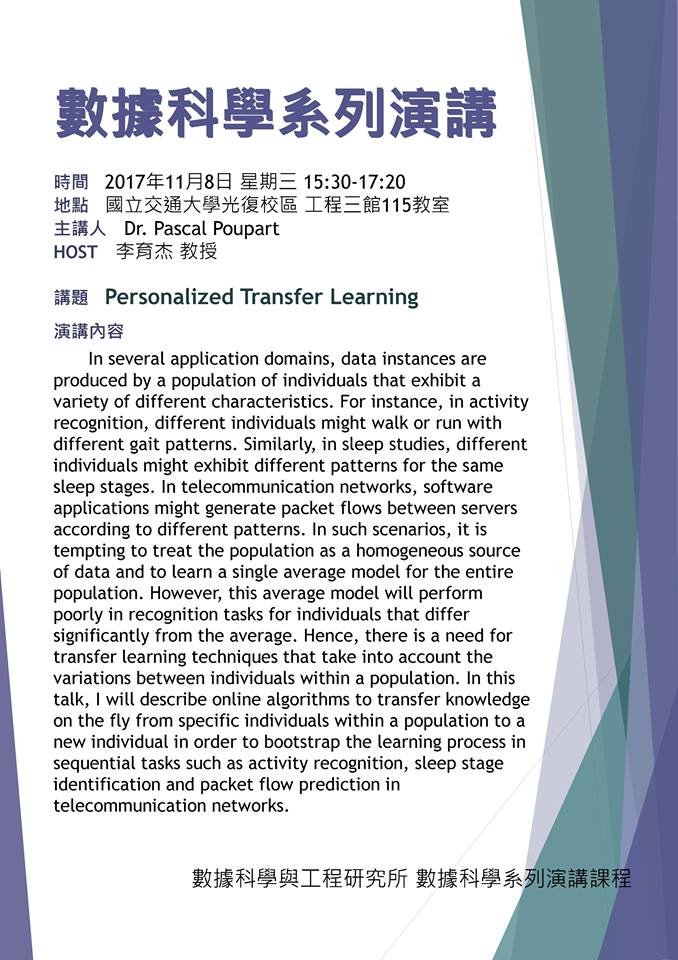[Invited Talk] Personalized Transfer Learning
- Topic : [Invited Talk] Personalized Transfer Learning
- Speaker: Dr. Pascal Poupart
- Date: Wednesday, November 8th, 2017
- Time: 3:30 pm - 5:20 pm
- Venue: 國立交通大學光復校區 工程三館115教室
Abstract
In several application domains, data instances are produced by a population of individuals that exhibit a variety of different characteristics. For instance, in activity recognition, different individuals might walk or run with different gait patterns. Similarly, in sleep studies, different individual might exhibit different patterns for the same sleep stages. In telecommunication network, software applications might generate packet flows between servers according to different patterns. In such scenarios, it is tempting to treat the population as a homogeneous source of data and to learn a single average model for the entire population. However, this average model will perform poorly in recognition tasks for individuals that differ significantly from the average. Hence, there is a need for transfer learning techniques that take into account the variations between individuals within a population. In this talk, I will describe online algorithms to transfer knowledge on the fly from specific individuals within a population to a new individual in order to bootstrap the learning process in sequential tasks such as activity recognition, sleep stage identification and packet flow prediction in telecommunication networks.
Biography
Pascal Poupart is a Full Professor in the David R. Cheriton School of Computer Science at the University of Waterloo, Waterloo (Canada). He received the B.Sc. in Mathematics and Computer Science at McGill University, Montreal (Canada) in 1998, the M.Sc. in Computer Science at the University of British Columbia, Vancouver (Canada) in 2000 and the Ph.D. in Computer Science at the University of Toronto, Toronto (Canada) in 2005. His research focuses on the development of algorithms for reasoning under uncertainty and machine learning with application to Assistive Technologies, Natural Language Processing and Telecommunication Networks. He is most well-known for his contributions to the development of approximate scalable algorithms for partially observable Markov decision processes (POMDPs) and their applications in real-world problems, including automated prompting for people with dementia for the task of handwashing and spoken dialog management. Other notable projects that his research team are currently working on include deep learning with clear semantics, structure learning, personalized transfer learning, conversational agents, adaptive satisfiability and stress detection based on wearable devices.
